“I, the mango – summer lives in my golden skin!”
- mai haikal

- Aug 13
- 3 min read
I am a mango. Not just any mango—I am an Egyptian mango, born under the sun of Ismailia, where the winds of the Suez Canal whisper stories and the earth smells sweet. I am not a fruit. I am a promise. A memory of the sun, wrapped in gold and sweet as a stolen kiss. I am Awees Mango, to be exact. Creamy, golden yellow, with a fragrance that would lure even pharaohs from beyond their tombs. And you know what that means? I have an image to uphold.
Every August, Ismailia invites you to a celebration of my essence—and I dance, dripping and radiant, through the streets. The city transforms into a mango fairytale, and the streets smell of me—of Awees, Zebdya, Sukkari, Tommy Atkins, Baladi, and over 100 other varieties, proudly displayed on the stalls.
“Awees is the Beyoncé of mangos,” shouts a vendor with a turban and a broad grin. “Zebdya is more like… Adele.” His friend counters: “And Tommy Atkins? Well, she tastes like PowerPoint—efficient, but without emotion.”
Every variety is a fragrance poem, every fruit a ritual. I am everywhere: in baskets, on plates, in smoothies, cakes, perfumes, and even in poems. Musicians tune into my color and play in my honor; dancers swirl like mango leaves in the wind. Poets drink me in verse, and in every hand that holds me, I feel gratitude. Children chase me in mango parades, and adults argue lovingly about whether I taste better as sorbet or grilled. In the market, my peels glow like phoenixes in the sunlight, while children whisper my name like magic spells. I am the star—without a crown, just with my golden skin. I am Mango—and in Ismailia, I am a legend.
“Mommy, look! This mango smells like perfume!” – A little boy pulls his mother away from the smoothie stand and reverently holds me in his hand. I pose. Of course. My peel glistens like suntan oil on Nubian skin. I'm ready.

Since my official festival debut in 2022, love has escalated: there are competitions to see who can peel me the most beautifully, who can describe me most sensually, and who can eat me the fastest. Between stage shows and market calls, I also give masterclasses: maturity isn't tested with math, but with sensuality. Squeeze me gently—my skin yields slightly. Breathe in—my scent tells you if I'm ready for eternal union with your tongue. If you say “Mmm,” science was right.

Visitors come from Cairo, Alexandria, and even farther away because rumor mills are more efficient than press outlets. They poke their noses at me: “Hmmm… tropical, floral, with a hint of desert poetry.” My cousin Baladi is more rustic—smelling of summer rain and a tea room.
A tourist from Spain asks, “How many varieties are there, anyway?” “Over 30!” shouts someone from the next stall. “We have Awees, Zebdya, Sukkari, Langra… even the introverted Keitt!” “Keitt? Sounds like a mango with a book club.” “Exactly. It ripens slowly and has depth.” “Want to try it?” asks a vendor. “I've already had three!” “Now try the spiritual one!” “What?” “The one that tastes like sipping the sunset.” I even once saw an ambassador tour the plantation—he said Awees mango was “a culinary diplomat.”
I come from a proud lineage: I've been growing mangos in Egypt since 1825, and Ismailia is my favorite place. Over 36% of the country's mango-growing area is here—that's around 120,000 feddans, or over 50,000 hectares of mango magic. We harvest over 720,000 tons here annually. Occasionally, I lose 10–20% out of impatience when someone grabs too early—but what's a little yield compared to the light up on faces when they taste what August sounds like for the first time? And yes, we're export stars, exporting to over 50 countries, with $143 million in sales last year alone. But most of all, I love staying here, where people celebrate me as if I were a poem to be eaten.
This festival isn't just a culinary spectacle. It's a communal ritual, a fragrance poem, a sensual acknowledgment to the earth. Farmers, traders, artists, and tourists—they all come together to honor me. And me? I smile in every bowl, in every smile, in every “mmm.”
I am Mango. I am taste, smell, myth. And in Ismailia, I am more than fruit—I am summer on the tongue. Tell me yourself: who needs champagne when you can have me?









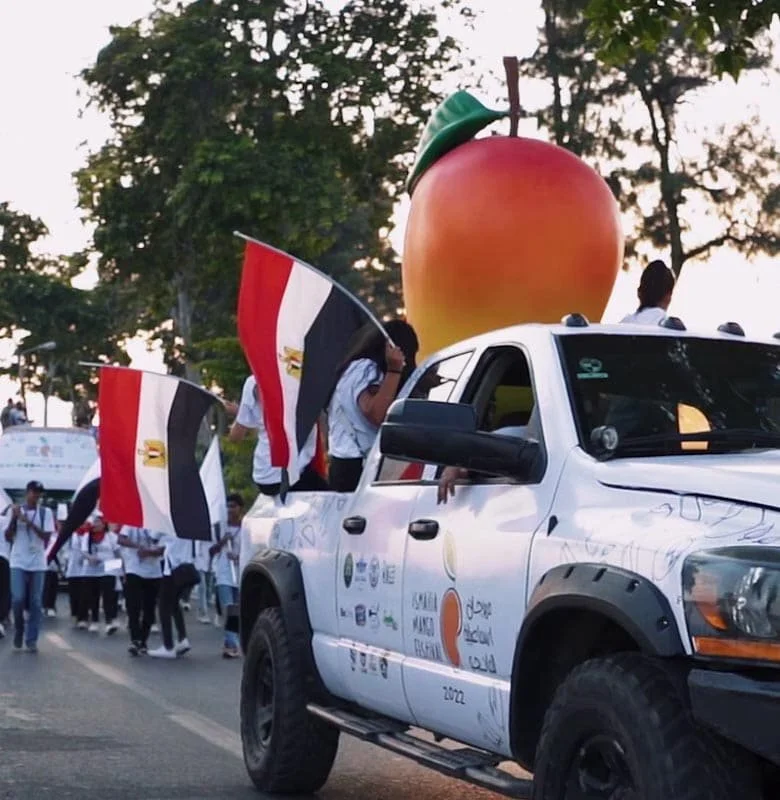
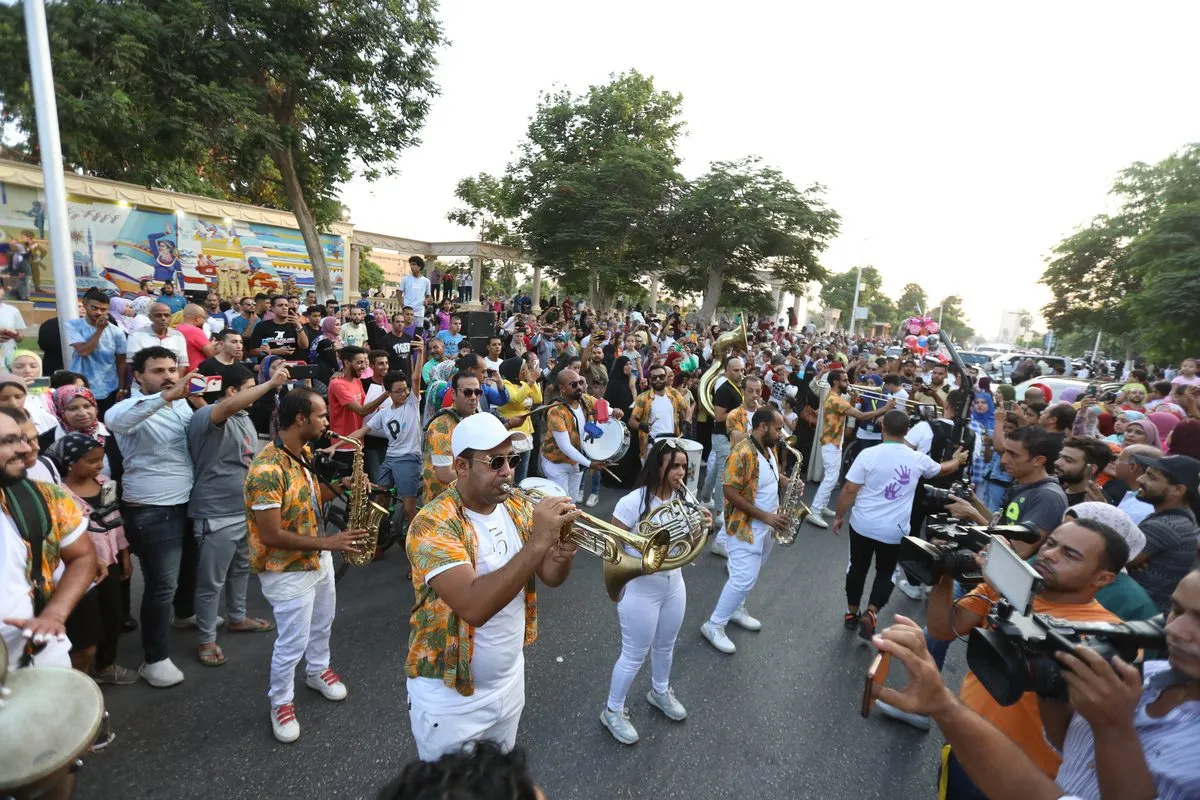

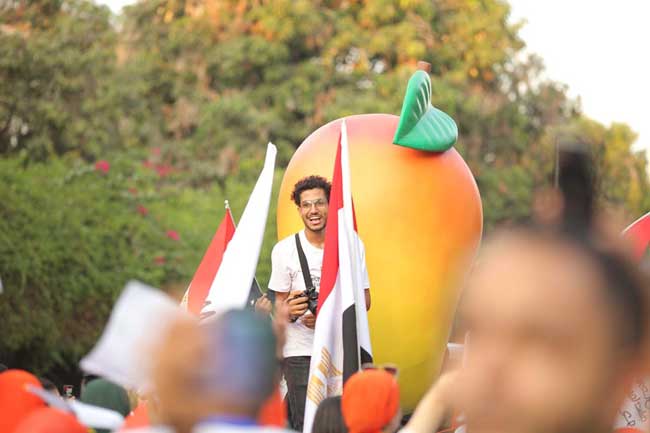







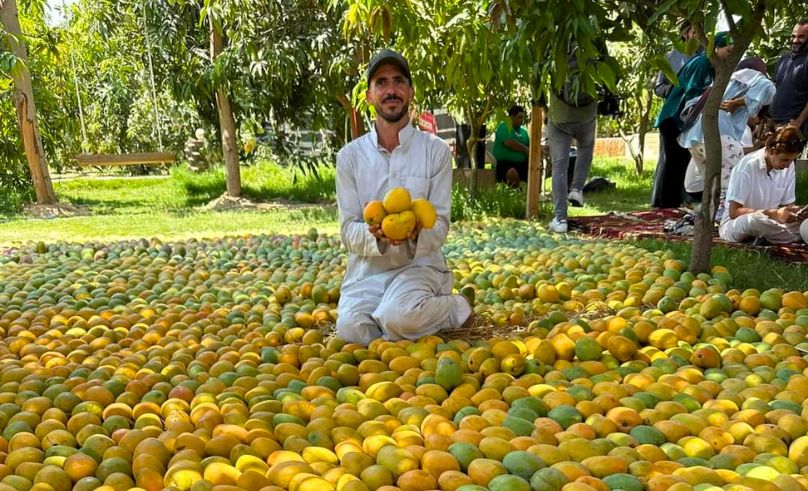







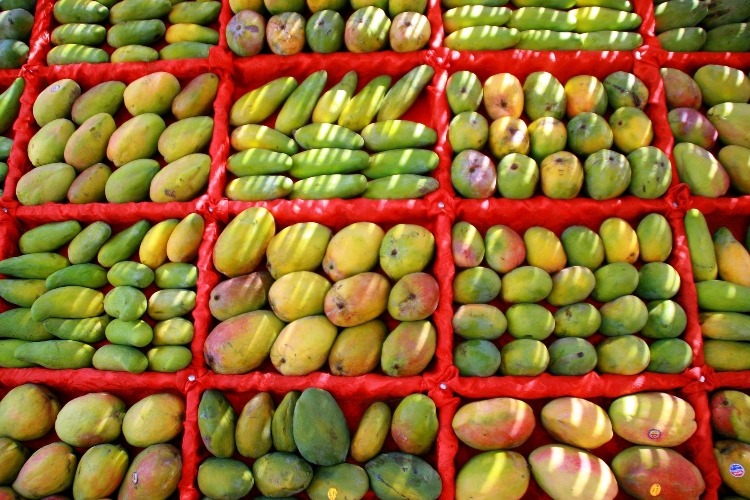
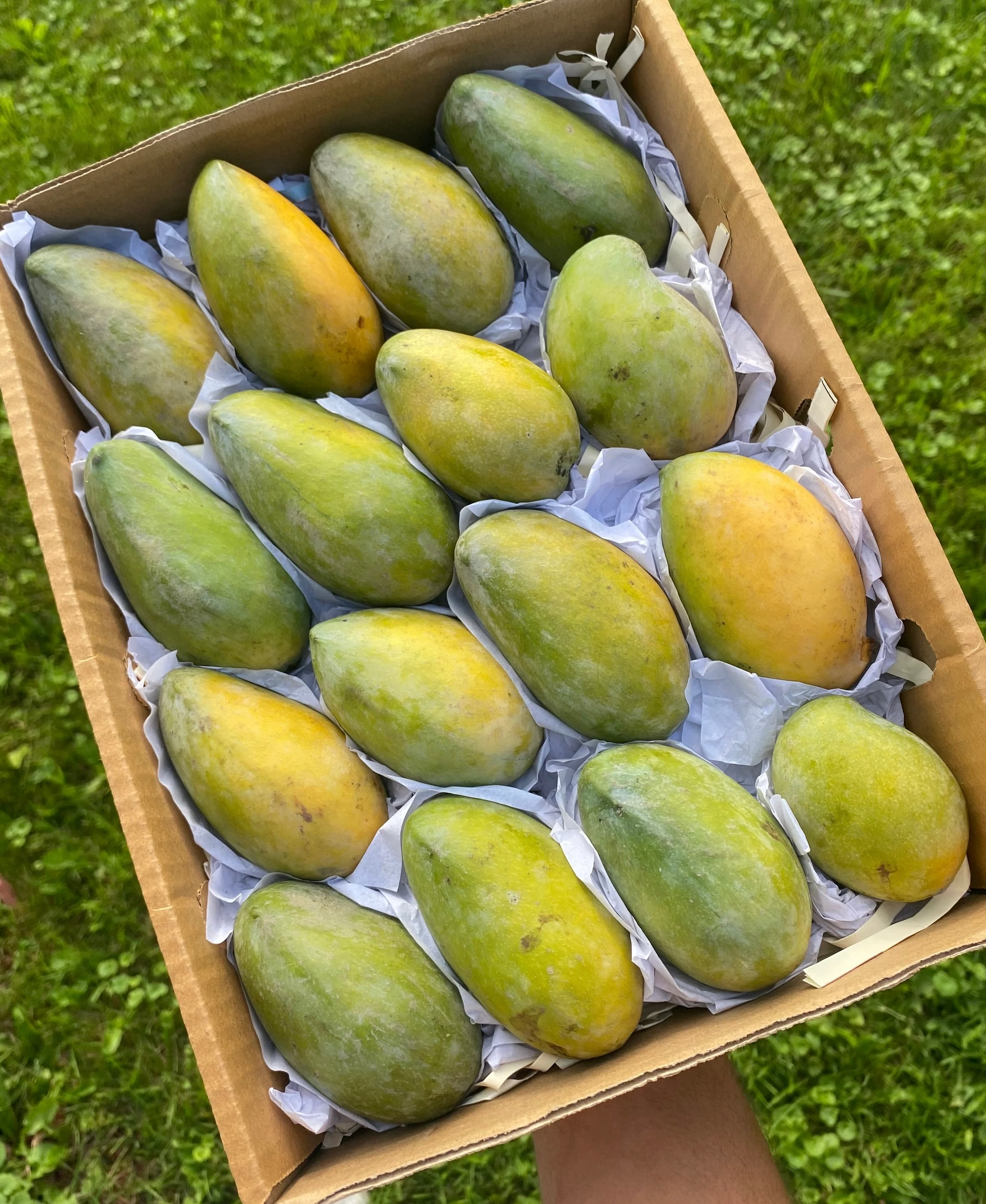


Comments